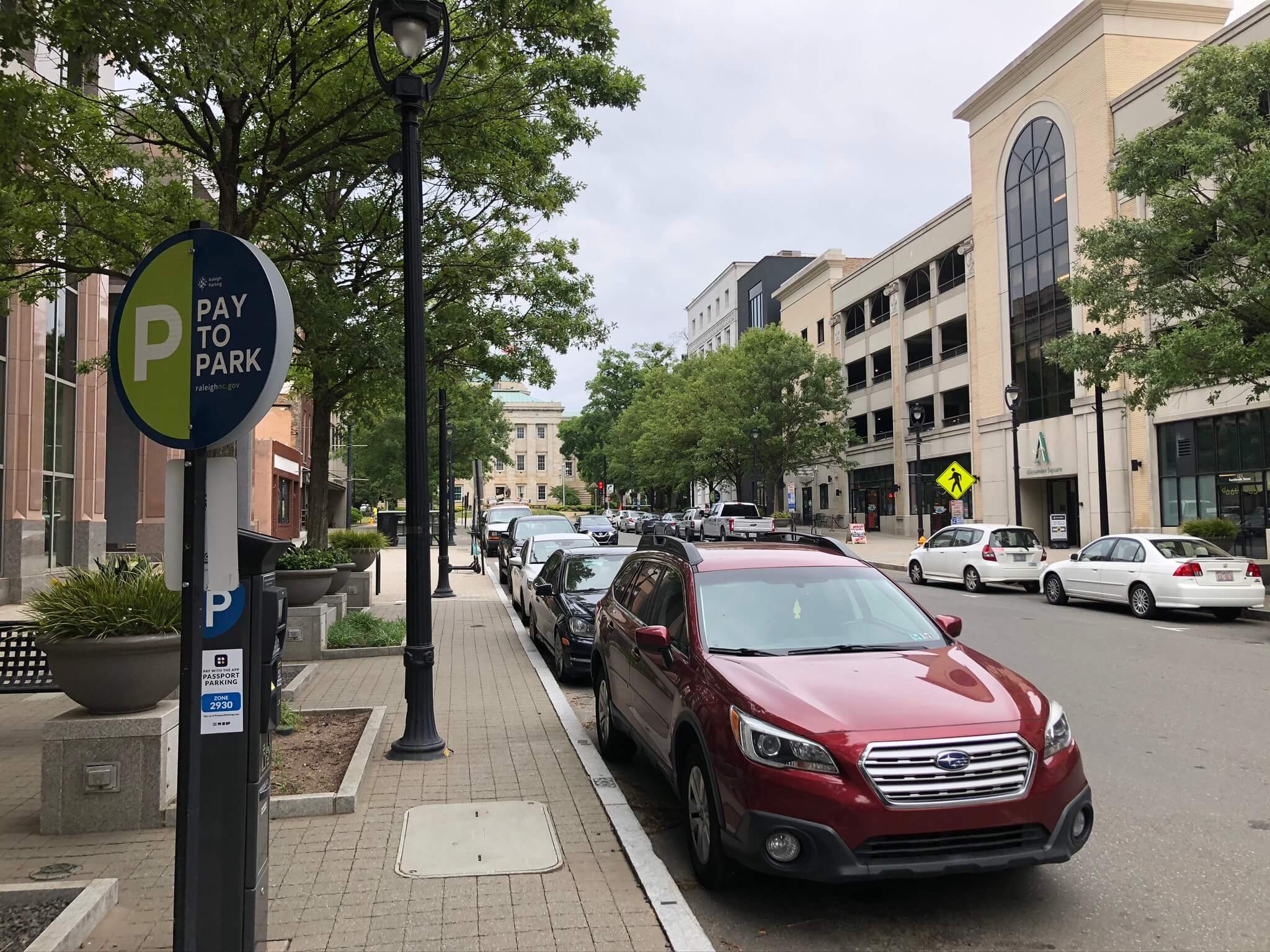Mandatory Parking Minimums: The Sneaky Regulation Driving up Housing Costs
Photo via Kimley-Horn
KENNETH JACKSON: As young jobseekers graduate from college and enter the workforce, they face a daunting challenge: finding affordable housing in a tight rental market. With increases in housing prices outpacing wage growth, many of the lowest-earners in our society fear being left on the street.
In its annual “Gap” report, the National Low Income Housing Coalition (NLIHC) projected that extremely low-income renters face a shortage of 7.3 million affordable rental homes in 2023. When it comes to such a large-scale issue, one might expect sweeping federal action to be the best solution—whether that be in the form of new regulations or new grant programs.
But surprisingly, one of the most effective policy solutions for this crisis is also one of the simplest, and it happens at the local level. We must abolish mandatory parking minimums.
Mandatory parking minimums are zoning regulations that require developers to provide a certain number of off-street parking spaces for new buildings. Typically, the required number of spaces is based on the type and size of development. For instance, a grocery store may need one parking space for every 200 square feet of gross floor area. While the exact implementation of parking minimum policies varies from city to city, their effect is the same across the country.
Wherever they are implemented, parking minimums reduce the supply of housing. Since land is a scarce and valuable resource in growing cities, using it for parking means less available space for housing, shops, and public amenities. The result? Higher costs, which are ultimately passed on to tenants and buyers. In fact, a recent study by the Victoria Transport Policy Institute estimated that an off-street parking space adds 12% to the cost of an apartment unit.
At the same time, parking minimums reduce cities’ capacity for economic development. Encouraging car usage discourages public transit usage, which ultimately disincentivizes the construction of mixed-use developments along transit corridors. Moreover, parking lots are worth little in property tax, and they reduce the revenue that municipalities could earn from paid on-street parking. Essentially, parking minimums reduce cities’ economic growth potential by favoring low-tax and low-productivity uses of land over higher-value ones.
While some may argue that eliminating parking minimums reduces the ability of commuters to benefit from low-cost housing in the suburbs, it is important to remember that this policy change would not eliminate parking lots entirely. It would simply allow developers to allocate limited space more efficiently, based on the needs of their project.
And, as first-moving cities have already demonstrated, parking demand can still be managed through other means—like pricing, shared parking, and transit development.
We can look to Seattle, WA and Buffalo, NY as two examples of cities that have found success eliminating parking minimums. In Seattle, a partial repeal of parking minimums saved the city an estimated $537 million over five years. Moreover, the city saved 144 acres of land that would previously have been designated for parking. In its place, housing, offices, shops, parks, and other public utilities were developed.
Likewise, an adaptive reuse project in Buffalo—which was made possible by eliminating parking minimums—turned an existing older building into 10 new apartments. The rehabilitated building became a mixed-use development with access to both housing and shopping.
What these cities have shown is that efficient land-use increases the supply of affordable housing. At the same time, economic development makes it easier for renters to afford housing by increasing their purchasing power. But for the skeptics who still aren’t convinced, there is also a strong environmental case for eliminating parking minimums.
For starters, cutting down trees and paving over soil increases the risk of flooding during heavy rains. That means parking mandates can actually increase the risk of expensive property damage and personal injury. Moreover, by encouraging car dependency and discouraging the usage of greener transportation, parking minimums contribute to greenhouse gas emissions. In the long-term, that hurts our ability to meet international climate objectives. And when it comes to climate change, the most vulnerable among us are the ones who will pay the price.
The reality is that we must look to the future if we care about affordable housing. In a world where dense urban development drives economic growth, parking mandates are a relic of the past. While America loves its cars, we can’t afford to sacrifice one of our greatest policy levers in the fight for affordable housing for car-centric convenience.
So, if you live in one of the many growing cities throughout the country, consider researching where local candidates stand on mandatory parking minimums next time you vote. The next generation will thank you.
Kenneth Jackson is a sophomore, majoring in Business and Global Affairs.

